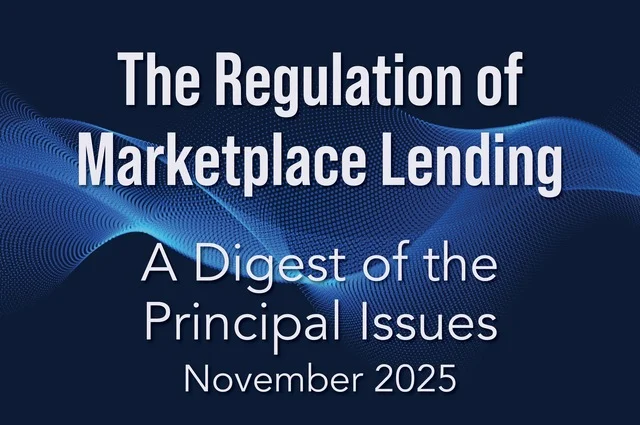- Topic: Cryptocurrency
11 matches.
- Exchanges Propose Generic Listing Standards for Commodity- and Crypto-Based Exchange-Traded Products
On July 30, 2025, Cboe BZX Exchange, Inc., NYSE Arca, Inc. and the Nasdaq Stock Market LLC (collectively, the “Exchanges”) each filed a proposed rule change with the Securities and Exchange Commission (the “Commission”) to amend their respective listing rules to include generic listing standards for shares of certain commodity-based exchange-traded products (“Commodity ETPs”) that satisfy specific requirements.
If adopted, a Commodity ETP meeting the requirements of the generic listing standards would be eligible for listing on an Exchange without the need to submit a separate Rule 19b-4 application to the Commission. This change would streamline the listing process and broaden the range of eligible products, including those that have previously experienced resistance and delays in approval by the Commission, such as Commodity ETPs holding crypto assets (“Crypto ETPs”).
In a flurry of pre-recess activity, Congress recently made headway on two pieces of legislation with significant impacts for the digital asset industry, the Guiding and Establishing National Innovation for US Stablecoins Act (the “GENIUS Act”), which passed both chambers of Congress and was signed into law by the President on July 18, 2025, and the Digital Asset Market Clarity Act of 2025 (the “CLARITY Act”), which has thus far only passed the House but builds upon components of earlier legislative efforts in both the House and Senate. Alongside, the House also passed the Anti-CBDC Surveillance State Act, which prohibits the Federal Reserve from issuing a central bank digital currency, part of the President’s directives in Executive Order 14067. Separately, the federal banking regulators released joint guidance to their respective federally chartered institutions on how to engage in safekeeping of crypto assets.
These developments include codification of many industry best practices and signals the intention of this Congress and administration to establish legal predictability and comfort for crypto and digital asset industry participants as well as their closely adjacent traditional banking and financial services partners.
On April 4, 2025, the Division of Corporation Finance (“Corp Fin”) of the Securities and Exchange Commission (the “SEC”) issued a statement (“Statement”) that the offer and sale of “Covered Stablecoins,” as defined by Corp Fin, does not involve the offer and sale of securities within the meaning of Section 2(a)(1) of the Securities Act of 1933 (the “Securities Act”) or Section 3(a)(10) of the Securities Exchange Act of 1934 (the “Exchange Act”). Accordingly, Corp Fin stated that “persons involved in the process of ‘minting’ (or creating) and redeeming Covered Stablecoins do not need to register those transactions with the SEC under the Securities Act or fall within one of the Securities Act’s exemption from registration.”
On March 7, 2025, the Office of the Comptroller of the Currency (“OCC”) issued Interpretive Letter 1183, which confirms that national banks may engage in certain crypto-assets activities and reverses the previous requirement that they first obtain a supervisory non-objection letter before engaging in such activities.
The Digital Chamber released a new report: "Beyond Merit: How the SEC's Division of Investment Management Blocked Permissible Investments in Digital Assets." The report seeks to provide a workable framework to turn historical Division of Investment Management actions regarding digital assets into a path forward for the increased availability of digital assets in investment company products. Chapman's Rick Coyle and Morrison Warren assisted in the preparation.
Chapman's quarterly Regulatory Update contains an overview of the latest regulatory actions, market happenings, and litigation and enforcement activity in the investment management space.
Chapman acted as counsel on the registration and listing of two of the first eight spot Ethereum (ether) exchange-traded funds (ETFs) to begin trading in the United States, following the U.S. Securities and Exchange Commission (SEC) declaring the registration statements for the ether ETFs effective on July 22, 2024.
Chapman acted as counsel on the registration and listing of three of the first spot bitcoin exchange-traded funds (ETFs) to launch in the United States, which received approval from the U.S. Securities and Exchange Commission (SEC) on January 10, 2024.
Chapman's quarterly Regulatory Update contains an overview of the latest regulatory actions, market happenings, and litigation and enforcement activity in the investment management space.
Chapman's quarterly Regulatory Update contains an overview of the latest regulatory actions, market happenings, and litigation and enforcement activity in the investment management space.
Chapman represented the Chamber of Digital Commerce in connection with its “Spot Bitcoin ETF Initiative” which set out to gain a deep understanding of the industry’s experience in pursuit of a registered Spot Bitcoin ETF and provide insight into the most realistic avenues for ultimately getting the SEC to approve this widely anticipated investment product.






